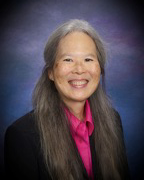By Tenley Fukui, MA, LPC
Recently, I trained National University of Singapore graduate students, along with other mental health professionals, in clinical hypnosis and the administration of research protocols I designed, called Treating Chronic Low Back Pain with Clinical Hypnosis. In addition, I presented, together with my former Michael E. DeBakey Veterans Affairs Medical Center Principal Investigator, Dr. Gabriel Tan, Hypnosis for Medical Purposes. The training consisted of a one-day workshop sponsored by the National University of Singapore.

I was surprised to find many mental health providers in the audience already practicing hypnosis. There were many more doing so than I had ever seen at a U.S. workshop, unless specifically hypnosis-focused.
I discovered Singaporeans are different than Americans. When I asked for a subject to demonstrate how hypnosis could decrease anxiety, no one admitted to having any anxiety or stress.
I learned that a mental health committee in Singapore recently responded that there is no Post Traumatic Stress Disorder (PTSD) in Singapore. With questioning, they continued that there aren’t any natural disasters in Singapore. Additional questioning revealed the audience did not think Singaporeans experienced family trauma.
I thought these answers were fascinating, supporting my finding that they do not admit to having any mental health problems.
Singapore’s rules about illicit substances are so severe that there is not a problem with drugs or crime. Anyone caught with more than 0.53 ounces of heroin, 1.1 ounces of cocaine or morphine, 8.8 ounces of methamphetamine, or 18 ounces of cannabis faces mandatory capital punishment, as possession of amounts above these is considered trafficking in these substances.1 Between 1991 and 2004, 400 people were hanged in Singapore, mostly for drug trafficking, one of the highest per-capita execution rates in the world.2
Many people have an addiction to gambling.
Singapore uses corporal punishment in the form of caning. There are punishments for littering, selling chewing gum, and jaywalking.
Another way Singapore was different from the United States was that there were no overweight men. Apparently, all men must serve two years in the military. They also are required to undergo a physical every year. If they are overweight, they attend a severe exercise boot camp to get them back to the proper weight. If males maintain a healthy weight, then they receive $400 for each year they remain slender.
I noticed some females who appeared slightly overweight, but none with the levels of obesity seen in the United States.
I inquired about suicide rates and apparently they are low in Singapore. Only recently three people committed suicide on the same bridge, in copycat suicides, all in the same week. The Singaporean government made it difficult to get access to the bridge to kill oneself.
Apparently Singapore’s clinics have similar problems to the United States military.
There aren’t enough mental health providers, so they are accelerating young people through college to fill the gap. A typical PhD program takes twenty-four months straight through with no vacation.
Singapore provides a different way of life in a beautiful tropical setting with highly motivated students.
1. Misuse of Drugs Act (Cap. 185, 2008 Rev. Ed.), ss. 5 and 33 read with the 2nd Sch.
2. ^ a b “Singapore: The death penalty: A hidden toll of executions”. Amnesty International. 2004. Archived from the original on 2008-01-11. http://web.archive.org/web/20080111225751/http://www.amnesty.org/en/alfresco_asset/aad0c6f3-a509-11dc-a92d-271514ed133d/asa360012004en.html. Retrieved 2008-01-15.